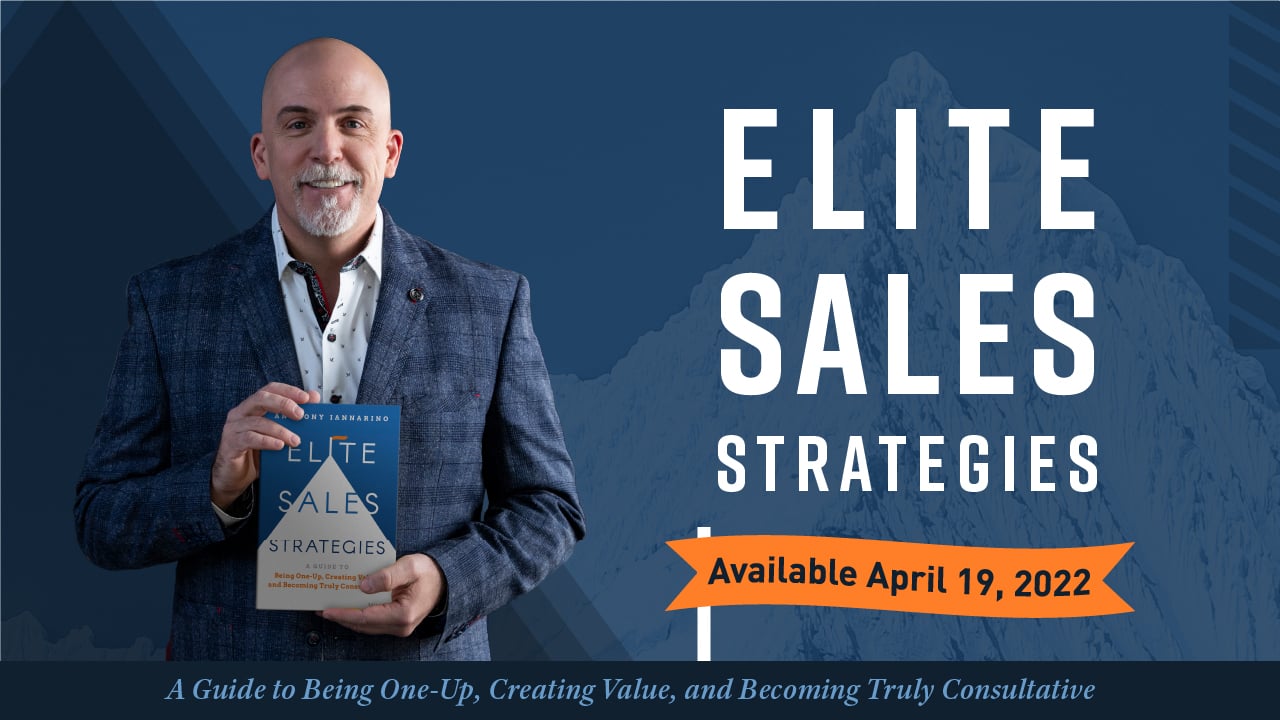We are happy with our current provider. Can you send me some information? Can you try me again next quarter? Your price is higher than your competitors’. You're going to need to sharpen your pencil. You are missing feature X. It's a deal breaker.
You cannot work in sales without hearing these statements. They are objections, challenges, or complaints—and it’s important that you are comfortable hearing these things. It's even more important that you approach them from the One-Up position.
The One-Down salesperson hears an objection and tries their best to overcome it with a strategy that is certain to lead to failure. When the One-Down salesperson hears, "We are happy with our current provider," they will attempt to address it by asking, "What do you like about them?" The client can easily answer this question by talking about how long they've worked with their partner and how they have a wonderful relationship.
Once that approach fails, the One-Down rep reverses the question by asking "What do you wish your provider did differently?" Here, they’re fishing for a problem they can use to open up a conversation and book a meeting—only to fail once again.
The salesperson who is not yet One-Up will also struggle when clients complain about the investment required to improve their results. The One-Up salesperson sees this as the time to explain how their model’s higher price lowers costs and prevents the client from agreeing to a basket of concessions that were never disclosed to them. Instead, the One-Down salesperson leaves the client to discover the concessions later, as they struggle to produce results and feel the pain of buyer's remorse.
What the One-Down salesperson gets wrong is that they believe what they hear is true and they take it at face value, eliminating any chance of addressing what the One-Up person recognizes as a concern.
The One-Up Approach to Objections
The salesperson who is One-Up listens beyond the words the client uses to object, challenge, or complain; they hear something different than the One-Down salesperson. The One-Up salesperson hears what the client says indirectly. They also recognize the client is intentionally obfuscating their real concern.
The nature of being One-Up can be summed up in the phrase: "I know something you don't know. May I share it with you?"
To be One-Up, you need to be able to identify and resolve your client's concerns—regardless of how they are presented.
The contact that says they are happy with their existing supplier may or may not be telling the truth. In either case, the One-Up salesperson hears the client saying something like, "That meeting would be a waste of my time." Instead of asking why the client likes their partner or what they wish was different, they restate the value of the meeting, reversing the risk by promising the contact it is worth their time—even if they retain their existing supplier. Because the One-Up salesperson knows what their clients don't know, they pitch a meeting where the contact will learn something that will help them improve their results.
A contact who complains about the investment they would need to make won't find the One-Up salesperson running back to their sales manager to ask for a discount and any other requests for concessions their client might have mentioned. Having disclosed their higher price early in the conversation, and having triangulated their competition, the One-Up salesperson reminds their contact about the risks of underinvesting and the value of avoiding concessions that come from taking money out of their own initiative.
The One-Up Salesperson Leads
My first book, The Only Sales Guide You'll Ever Need was published in October 2016. The book has 17 elements, and the last skill was leadership. The One-Up salesperson recognizes it is their responsibility to lead their clients, preventing their proclivities from harming their future results.
The objections, challenges, and complaints allow the One-Up salesperson to continue to offer their counsel, advice, and recommendations.
The One-Down salesperson doesn't recognize the need to lead, and it’s more than likely that they don't have the confidence or the strategies they would need to address the concerns their clients have. In Elite Sales Strategies: A Guide to Being One-Up, Creating Value, and Becoming Truly Consultative, you will find a list of factors that suggest that a person is One-Down, as well as an approach that serves your clients by creating value for them in every interaction.
No One Knows What They Don't Know
The client that believes meeting with a salesperson is a waste of their time bases that decision on the experience of meeting with salespeople only to be disappointed. That is their general belief because they have agreed to meet with a One-Down salesperson. The One-Up salesperson knows they must have a value proposition to command a meeting, and that it is their responsibility to create value for their contacts in every interaction.
When a decision maker tries to be thrifty and chooses a company with a low-price delivery model, they experience buyer's remorse when the company doesn't produce the results they need. That decision was a One-Down decision, enabled by a One-Down salesperson. The One-Up salesperson would reverse their objection by explaining the implications of underinvesting in the better results the client needs. The One-Up salesperson helps the client recognize they can't produce better results by investing less than what is necessary.
Clients use objections so they don’t need to name their concerns.
The One-Up salesperson recognizes the need to address the underlying concern instead of the objection. Because the nature of One-Up is "I know something you don't know," the One-Up salesperson resolves the concern and creates the certainty of results that comes from helping their client make the best decision for their business.












